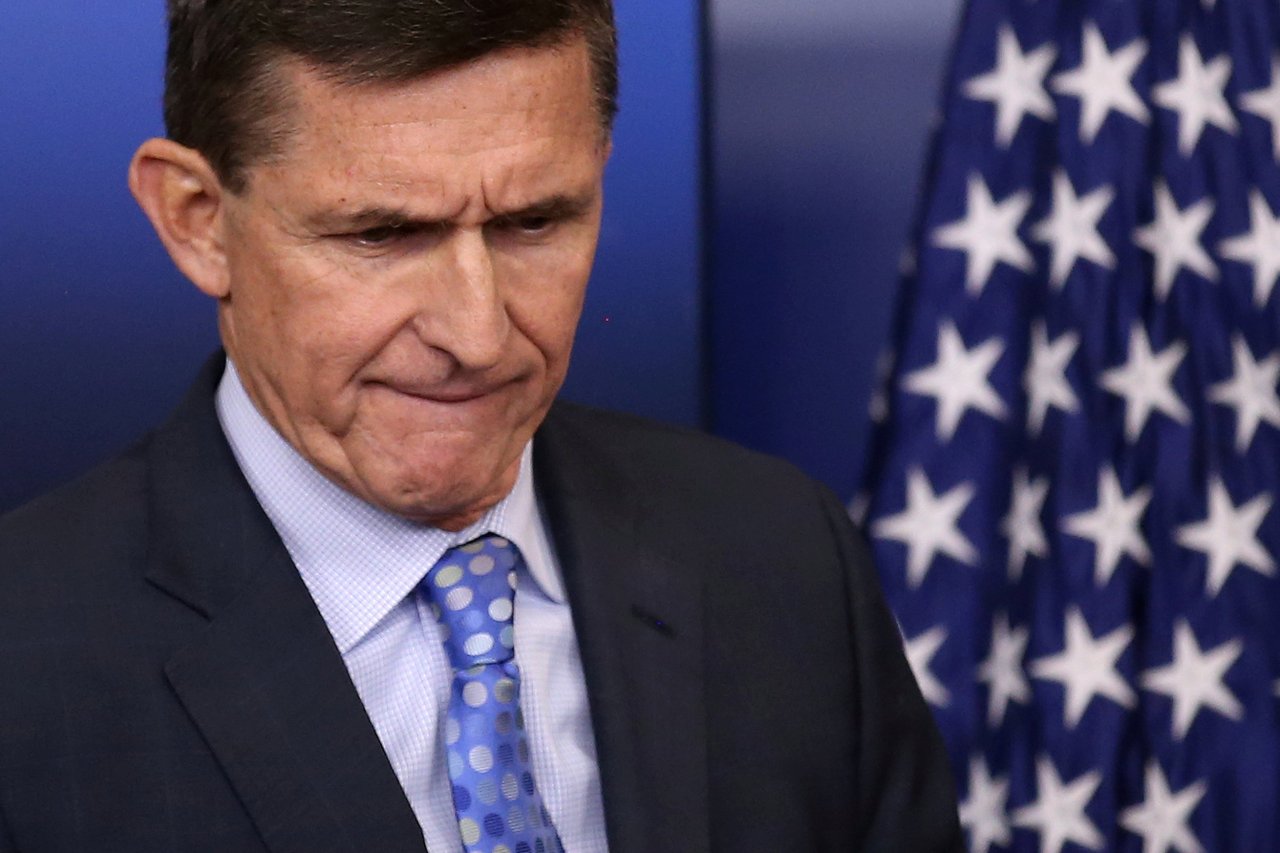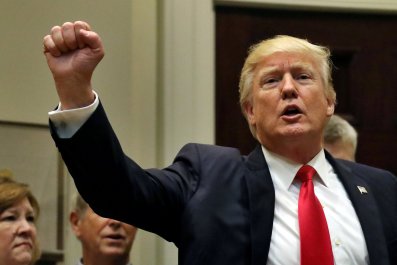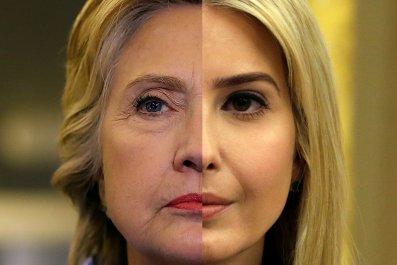Years back, when I was researching a story about how the CIA had overlooked Russian moles in its ranks, I applied for my own security file. I wanted to know what investigators had dug up when they delayed granting me a top-secret clearance for a slot in Army Intelligence during the Vietnam War. As it turned out, they had discovered an alarming piece of information: I had been fired from a summer job years earlier at Sugarman's shoe store in Hyannis, Massachusetts.
According to my declassified file, the agents rushed down to Cape Cod to interview the proprietor. Mr. Sugarman gave the agents the shocking story: He'd fired me because I "was no good with women's shoes." That derogatory item, along with a one-time visit to my campus shrink the previous year for counseling after my girlfriend dumped me, held up my clearance for weeks.
Related: Flynn likely broke the law with paid Russia trip, Chaffetz says
If only the FBI had been so zealous in the case of Michael Flynn, the ousted White House national security adviser. More wreckage from Flynn's career surfaced on April 25, when the Republican and Democratic leaders of the House Oversight Committee said he had failed to disclose what had been reported for months: payments totaling more than $65,000 in 2015 from companies linked to Moscow, including its propaganda arm, Russia Today, or RT. Flynn had also failed to register as a foreign agent after accepting a $600,000 contract with a lobbyist linked not only to Turkish strongman Recep Tayyip Erdogan but also to Russian President Vladimir Putin. "As a former military officer, you simply cannot take money from Russia, Turkey or anybody else," said Representative Jason Chaffetz of Utah, chairman the committee, "and it appears as if he did take that money. It was inappropriate, and there are repercussions for a violation of law."
The obvious question is: How did Flynn get a security clearance? The foreign payments were just the latest vexing chapter in the retired general's vexatious career. In 2014, he'd been forced out as head of the Defense Intelligence Agency (DIA) for his "chaotic" and "toxic" management style, according to several reports. He had an affinity for conspiracy theories and made-up "Flynn facts," his closest aides said. And yet, even as reports piled up after the November election about Flynn's Moscow visits and secret meetings with Russian Ambassador Sergey Kislyak, there he was in January, at President Donald Trump's side, with unfettered access to the government's most closely held secrets.
How did he slip through the security net and into the White House? The FBI refuses to comment. But former FBI agents and intelligence analysts with experience in vetting presidential appointments tell Newsweek the explanation is at once very simple and complicated—because the Flynn case was linked to the shadow world of Russian spies and Team Trump's Moscow contacts.
The simple parts: "When the Bureau does an background investigation, they don't get transactional-level data on your financial," says Aaron Arnold, an FBI counterintelligence analyst from 2008 to 2013. "In fact, the only financial data they collect when doing the background investigation is basically a credit check." That is, a person can be "cleared" for top-secret documents in less time than it takes an ordinary person to get a mortgage, he and other specialists say. "With your Social Security number, they check the banks and so forth," says Joe Navarro, a retired special agent who conducted so-called Special Presidential Investigations, or SPINs, of Cabinet appointees during the Reagan administration.
"The biggest thing, I have to tell you, that we look for is not the financial stuff, but it's in the interviews that we do from the people that the person has put down as relatives or acquaintances or recommendations," Navarro says. "We usually only check what the person has put down." Since Flynn never "put down" his payments from foreign income, the DIA informed the House Oversight and Government Reform Committee on April 7, FBI vetters would not have seen them.
With the FBI facing a crush of Cabinet and White House appointments after an election, not only are its resources stretched thin but most of the checking is carried out by agents with little to no national security background or training, the bureau veterans say. Even if Flynn had declared large foreign payments into his own or his company's bank accounts—he was paid over $500,000 by a Washington, D.C., lobbyist for Turkey—their "national security significance could be missed" because the records checkers "are on a special squad at Tysons Corner and all they do is background investigations," says former senior FBI special agent David Gomez, who spent nearly 30 years conducting, supervising, managing and auditing SPINs in the field and at headquarters.
In the post-election rush, the FBI vetting teams also wouldn't have been trying to look into what Flynn omitted when he filled out Section 20 of his SF-86, the federal government's national security questionnaire, Gomez and other FBI veterans say. "No one from the FBI is going around making sure that every ex-government executive is properly registering their activities," says Arnold, who specialized in complex financial investigations into nuclear weapons smuggling. "The system is somewhat based on self-reporting."
"In any case," says Gomez, now a senior fellow at George Washington University's Center for Cyber & Homeland Security, "presidential appointments are different in that the bureau will only report facts and leave the vetting decision to the White House staff.
"You can see the problem there," he added. Indeed, the Justice Department warned the White House about Flynn's Russia problems in January, but it stayed mum and he continued in his job until he was fired in February amid the burgeoning scandal. The White House is still stonewalling the House Oversight Committee on what it knows about Flynn, the panel's top Democrat, Maryland congressman Elijah Cummings, complained Thursday.
The Counterspy Game
On Monday, March 20, FBI Director James Comey confirmed in hourslong testimony before the House Intelligence Committee that as far back as July, his agents had been investigating Russian efforts to interfere in the 2016 election, including any cooperation between Trump's campaign associates and Russian agents or officials. Ironically, say FBI veterans, the fruits of such an investigation—even its existence—would have been tightly compartmented away from agents tasked with conducting a background check of Flynn, who had somewhat notoriously been seated at Putin's side at an anniversary banquet for RT.
Had one or more of the vetting agents, their curiosity whetted by the mounting headlines about Flynn's Russia contacts, asked for a green light to dig deeper, the answer from FBI headquarters might well have been silence. In the FBI's secretive realm, the counterintelligence section, or CI, is the heavily guarded queen, to be protected at all costs. "The CI investigation would be separate from the White House security and background investigation, which would have occurred after Flynn was named as [national security adviser] in November 2016," says Andrew Bringuel, who retired last month after 27 years in the FBI, the last dozen spent in its Behavioral Science Unit, made famous in The Silence of the Lambs. "Any derogatory evidence would go to the security division for follow-up and adjudication."
As is now well known, U.S. intelligence intercepted Flynn's conversations with Kislyak before and after President Barack Obama ordered the expulsion of 35 alleged Russian spies and the imposition of sanctions in response to Moscow's election meddling. Only much later did the White House acknowledge that Trump's son-in-law and close adviser Jared Kushner had also met secretly with Kislyak in Trump Tower in December. Judging by Comey's testimony, Bringuel says, "Flynn was not the focus of the [Russia] investigation, but when he was implicated, it would be [standard operating procedure] to spin off a CI assessment on his activities and, if warranted, an intelligence or criminal investigation," the details of which were probably not shared with the FBI's vetting project.
But they were shared, eventually, with Team Trump, because Flynn was lying about his meetings with the Russian ambassador to people outside the president-elect's immediate circle—and, most important, lying to Vice President Mike Pence, according to reports. Pence had gone on TV to deny that Flynn had discussed Obama's Russia sanctions, and that left the president's national security adviser open to blackmail by the Russians, Acting Attorney General Sally Yates decided, according to The Washington Post's February 13 report. Flynn resigned soon after.
The FBI's investigation of Russian subversion and Trump associates continues, along with congressional probes. They could well continue into the last months of Trump's term.
Might the bleeding have been stanched far earlier by denying Flynn a security clearance at the outset of the administration, or even far earlier? Only in theory. With so many Trump officials implicated by their Russia dealings, the situation was unprecedented. "Other than the POTUS-elect" says Gomez, "there was no one to brief the investigation to, and Trump didn't want daily intel briefs" from the CIA, which he'd mocked throughout the campaign for its mistaken reports on Iraq's nonexistent weapons of mass destruction. Plus, how could the FBI reveal the progress of an investigation in which the president's aides could be targeted?
"The bureau maintains a healthy mistrust of briefing internally compartmented CI material to campaign aides who themselves haven't necessarily been cleared," Gomez points out.
Flynn's problems were far deeper than my security issue from being fired from a shoe store job. But if he'd just slinked away after he'd been fired from the DIA and avoided nefarious dealings with the Russians (and Turks), he wouldn't be facing the problems he has today. Nor would the president and his men.
"Oh, what a tangled web we weave," Gomez joked, invoking Sir Walter Scott to sum up their plight, "when first we practice to deceive."


















